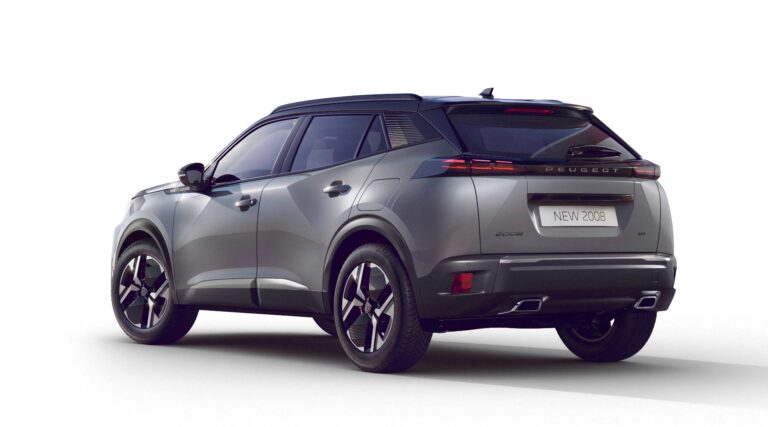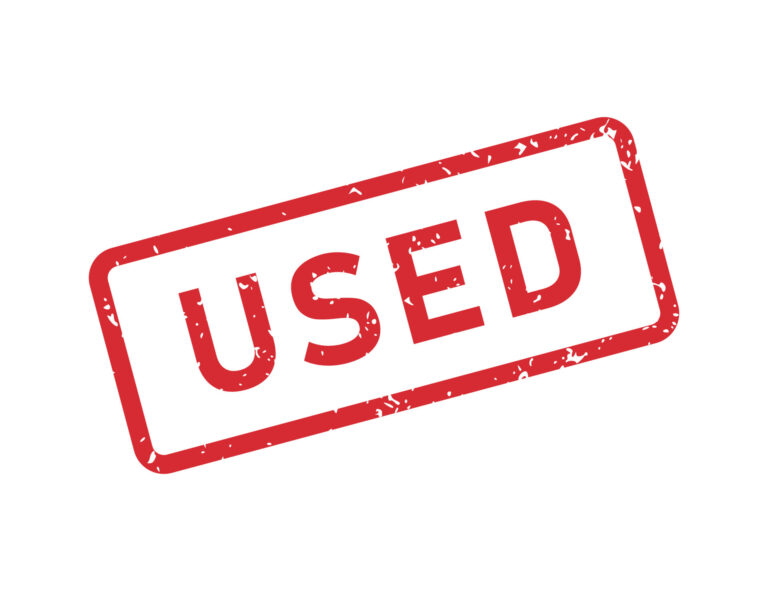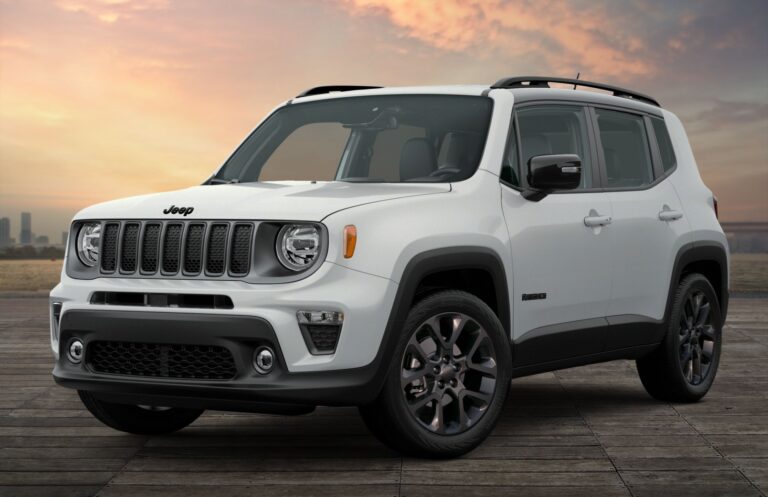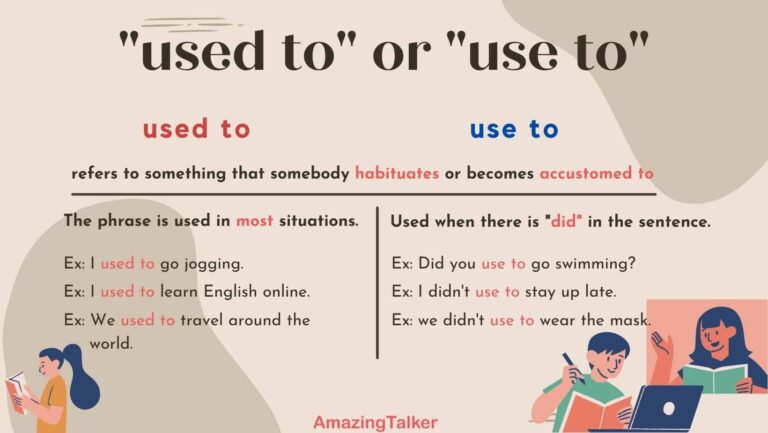Totaled Jeep JK For Sale: Your Comprehensive Guide to Buying a Damaged Icon
Totaled Jeep JK For Sale: Your Comprehensive Guide to Buying a Damaged Icon jeeps.truckstrend.com
The allure of a Jeep Wrangler JK is undeniable. Its iconic looks, legendary off-road capability, and boundless customization options make it a dream vehicle for many. However, new or even used JKs can come with a hefty price tag. This is where the world of "Totaled Jeep JK For Sale" enters the picture – offering a unique, often more affordable, entry point into Jeep ownership, albeit with a significant undertaking.
But what exactly does "totaled" mean for a Jeep JK, and why would anyone consider buying one? This comprehensive guide will demystify the process, from understanding the various states of damage to navigating the purchase, inspection, and potential rebuilding process. If you’re a savvy enthusiast, a budget-conscious adventurer, or simply someone who loves a good project, a totaled Jeep JK might just be your next rewarding venture.
Totaled Jeep JK For Sale: Your Comprehensive Guide to Buying a Damaged Icon
What Does "Totaled" Really Mean for a Jeep JK?
When an insurance company declares a vehicle "totaled," it doesn’t necessarily mean the vehicle is beyond repair. Instead, it signifies an "economic total loss." This occurs when the cost to repair the vehicle (including parts, labor, and supplemental costs like rental cars) exceeds a certain percentage of its actual cash value (ACV) before the damage. This percentage varies by state, typically ranging from 50% to 100%.
For a Jeep JK, this could mean anything from extensive body panel damage, a deployed airbag system, or minor frame tweaks to severe structural compromise, flood damage, or fire damage. The key takeaway is that the vehicle’s repair cost, as determined by an insurer, makes it uneconomical to fix and return to its pre-accident condition, not necessarily that it’s irreparable.
Once a vehicle is declared a total loss, its title is usually converted to a "salvage title." This title indicates the vehicle has sustained significant damage and is not fit for road use until it has been repaired, inspected, and issued a "rebuilt" or "reconstructed" title, depending on state regulations.
Why Buy a Totaled Jeep JK? The Allure of the Damaged Icon
The idea of purchasing a damaged vehicle might seem counterintuitive, but for Jeep enthusiasts, a totaled JK offers several compelling advantages:
1. For Parts: The Ultimate Donor Vehicle
A totaled JK can be an incredibly cost-effective source for expensive components. If you already own a JK and need a replacement engine, transmission, axles, transfer case, suspension parts, or even interior components, buying a totaled vehicle where those specific parts are intact can be significantly cheaper than buying new or even used individual parts. You can strip what you need and then sell the remaining parts or scrap the hulk, often recouping a good portion of your initial investment.

2. For Rebuilding and Restoration: A Rewarding Project
For those with mechanical aptitude, access to tools, and a good dose of patience, rebuilding a totaled Jeep JK can be an immensely satisfying project. It allows you to learn about your vehicle inside and out, customize it exactly to your specifications, and ultimately own a unique JK that you brought back to life. The cost of a totaled JK plus repairs can often be less than buying a comparable JK in good condition, allowing for a higher-spec build within a tighter budget.
3. For Off-Road/Crawl Rigs: Building a Beast
If your primary goal is to build an extreme off-road or rock-crawling rig, a totaled JK can be an ideal starting point. Minor body damage, which might total a vehicle, is often irrelevant for a dedicated trail machine that will inevitably collect battle scars. Focus can be placed on reinforcing the frame, upgrading axles, suspension, and drivetrain, without the guilt of cutting up a pristine vehicle. A salvage title also means lower initial investment, freeing up funds for performance upgrades.
4. For Resale (with Caution): The "Flipping" Opportunity

While riskier and requiring significant expertise, some individuals buy totaled JKs, meticulously repair them, obtain a rebuilt title, and then sell them for a profit. This path requires a deep understanding of repair costs, market values, and state-specific regulations for title branding and inspections. Transparency with potential buyers about the vehicle’s history is paramount.
Navigating the Purchase: Where to Find Totaled Jeep JKs For Sale
Finding a totaled Jeep JK requires knowing where to look beyond traditional used car dealerships.
- Online Salvage Auctions (Copart, IAAI, ACV Auctions): These are the primary marketplaces for totaled vehicles from insurance companies. You’ll find a vast inventory with detailed descriptions, photos, and often condition reports. Be aware that you usually need a dealer license or a broker to bid on some vehicles, though many offer options for public buyers.
- Local Salvage Yards/Auto Recyclers: Many smaller, local salvage yards buy totaled vehicles directly from insurance companies or individuals. Visiting these yards in person allows for direct inspection and negotiation. Inventory might be less organized than online auctions, but you could find a hidden gem.
- Online Marketplaces (Facebook Marketplace, Craigslist, eBay Motors): Individuals who bought totaled vehicles, started a project, and couldn’t finish it often list them here. Prices can be lower, but diligence is key as sellers might not provide comprehensive details or proper documentation. Always insist on seeing the title.
- Specialized Jeep Forums and Social Media Groups: Online communities dedicated to Jeeps often have "for sale" sections where members might list totaled or project JKs. These can be great places to find a vehicle from an enthusiast who understands its value, even in a damaged state.

The Inspection Imperative: What to Look For Before You Buy
This is arguably the most critical step. Never buy a totaled Jeep JK sight unseen. Even with detailed online photos, a physical inspection is non-negotiable.
- Damage Assessment:
- Frontal/Rear Impact: Check radiator support, bumper mounts, frame rails, engine components.
- Side Impact: Look for bent B-pillars, door misalignment, rocker panel damage.
- Rollover: Inspect roof, A-pillars, windshield frame, and overall body distortion.
- Flood Damage: This is one of the riskiest. Look for water lines, mud/silt in crevices, musty odors, rust on interior metal, corrosion on electrical components, and signs of dried mud under the dash or seats. Often best to avoid unless you’re an expert.
- Fire Damage: Check wiring harnesses, melted plastics, charred components. Also highly risky.
- Frame Integrity: The Jeep JK has a full-frame chassis. Inspect the frame rails meticulously for bends, kinks, cracks, or signs of improper repair. A bent frame is extremely difficult and costly to fix correctly and can lead to alignment issues and compromised safety.
- Engine & Transmission: If possible, try to turn the engine over (if battery is present). Look for obvious leaks, cracked casings, or severe impact damage to accessory components.
- Electrical System: Check for frayed wires, cut harnesses, or signs of water intrusion. Electrical issues are notoriously difficult and expensive to diagnose and repair.
- Interior Condition: Check for deployed airbags (a major repair cost), water damage (mold, mildew), torn upholstery, and functionality of controls.
- Suspension & Axles: Look for bent axle tubes, cracked differential housings, bent control arms, or damaged steering components.
- Title Status: Always verify the title. Ensure it’s a salvage title and not a "parts only" title, which cannot be rebuilt.
Practical Advice: Bring a trusted mechanic or body shop professional with you. Their trained eye can spot damage you might miss. Factor in the cost of a pre-purchase inspection.
Legalities and Logistics: Understanding Titles and Transportation
Salvage Title vs. Rebuilt Title
- Salvage This means the vehicle has been declared a total loss by an insurer. It cannot be legally driven on public roads in this state.
- Rebuilt/Reconstructed Once a salvage vehicle has been repaired, it must undergo a rigorous state inspection to verify that it meets safety standards and that all repairs were done correctly. If it passes, the state issues a "rebuilt" or "reconstructed" title, allowing it to be registered and insured for road use. The process and requirements vary significantly by state.
State-Specific Regulations
Before buying, thoroughly research your state’s Department of Motor Vehicles (DMV) or equivalent agency’s requirements for rebuilding and titling a salvage vehicle. Understand the inspection process, required documentation, and any associated fees. Some states are much stricter than others.
Transportation
A totaled Jeep JK cannot be driven. You will need to arrange for a flatbed tow truck or a trailer to transport it from the purchase location to your repair facility or home. Factor this cost into your budget.
Insurance Implications
Insuring a rebuilt title vehicle can be challenging. Some insurance companies may refuse to offer full coverage, or they may offer it at a higher premium with a lower payout in case of a future claim. Shop around and be transparent about the vehicle’s history.
Tips for a Successful Totaled JK Purchase
- Set a Realistic Budget: Don’t just factor in the purchase price. Add estimates for parts, tools, potential professional labor, transportation, and title fees. Always have a contingency fund for unexpected issues.
- Assess Your Skill Level: Be honest about your mechanical and bodywork capabilities. If you’re not comfortable with major repairs, the cost of professional work might negate any savings.
- Do Your Homework: Research common JK issues, parts availability, and the typical costs of repairs for the type of damage you’re considering.
- Patience is Key: Don’t rush into a purchase. The right totaled JK for your budget and skill level might take time to find.
- Document Everything: Keep meticulous records of all repairs, parts purchased, and associated costs. This will be crucial for the rebuilt title inspection and for future resale.
- Know Your End Goal: Are you building a trail rig, a daily driver, or a flip? Your goal will dictate the type of damage you can tolerate and the level of repair needed.
Challenges and Solutions
- Hidden Damage: The biggest challenge. A thorough pre-purchase inspection by an expert is your best defense. A contingency budget is your financial solution.
- Parts Availability/Cost: While many JK parts are readily available, specialized or less common parts might be harder to source. Utilize online parts diagrams, salvage yard networks, and aftermarket suppliers.
- Legal Hurdles: Navigating state-specific title and inspection processes can be complex. Start your research early, visit your local DMV, and don’t hesitate to ask questions.
- Time Commitment: Rebuilding a totaled vehicle is a significant time investment. Be realistic about how much time you can dedicate.
- Resale Value: A rebuilt title will always negatively impact resale value compared to a clean title vehicle. Be prepared for this and be transparent with future buyers about the vehicle’s history.
Price Table: Estimated Costs for Totaled Jeep JKs
Disclaimer: Prices are highly variable based on year, trim (Sport, Sahara, Rubicon), mileage, location, and severity/type of damage. These are general estimates.
| Condition/Damage Level | Estimated Price Range (USD) | Common Reasons for Totaling | Typical Usage Post-Purchase |
|---|---|---|---|
| Minor Body/Cosmetic | $3,000 – $7,000 | Minor fender bender, deployed airbags, light hail. | Daily driver, light off-roading, project vehicle. |
| Moderate Mechanical | $2,000 – $5,000 | Engine/transmission failure, light rollover (body intact). | Parts donor, custom build (engine swap, drivetrain focus). |
| Significant Body/Frame | $1,000 – $4,000 | Heavy frontal/side impact, moderate rollover. | Parts donor, dedicated trail/crawl rig (frame repair/swap). |
| Flood/Fire Damage | $500 – $2,500 | Submerged in water, engine bay fire. | Primarily parts donor (specific components), extreme risk. |
| High Mileage/Older Model | $500 – $3,000 | Often combined with any of the above, lower ACV. | Parts donor, very low-budget project. |
Frequently Asked Questions (FAQ)
Q1: Can I drive a totaled Jeep JK home after buying it?
A1: No. A vehicle with a salvage title is generally not legal to drive on public roads. You will need to arrange for a tow truck or flatbed transport.
Q2: Is it hard to get insurance for a rebuilt title Jeep JK?
A2: It can be. Some insurance companies may be hesitant to offer full coverage, or they might charge higher premiums. It’s crucial to shop around and be upfront about the vehicle’s rebuilt status.
Q3: How long does it typically take to rebuild a totaled JK?
A3: This varies wildly based on the damage, your skill level, available time, and parts availability. It could be a few weeks for minor repairs or several months to a year (or more) for extensive projects.
Q4: What’s the riskiest type of totaled JK to buy?
A4: Flood-damaged and fire-damaged vehicles are generally the riskiest due to hidden electrical issues, rust, and structural integrity concerns that are difficult to fully assess. Severe frame damage is also very challenging and costly to repair correctly.
Q5: Can I register a vehicle with a salvage title?
A5: No, not for road use. A salvage title indicates the vehicle is not roadworthy. It must undergo repairs and pass a state inspection to be issued a "rebuilt" or "reconstructed" title before it can be registered and legally driven.
Q6: What essential tools do I need for rebuilding a totaled JK?
A6: Depending on the damage, you’ll likely need a comprehensive mechanics tool set, jack stands, a floor jack, torque wrench, impact wrench, various pliers, wiring tools, and potentially specialized bodywork tools like a frame puller (if you’re tackling frame repair yourself).
Conclusion
Buying a totaled Jeep JK for sale is not for the faint of heart, but for the right individual, it can be an incredibly rewarding and cost-effective path to Jeep ownership. Whether you’re seeking a donor vehicle for parts, a challenging restoration project, or the foundation for an extreme off-road build, the potential savings and satisfaction are significant.
The key to success lies in thorough research, meticulous inspection, realistic budgeting, and a clear understanding of the legal and logistical hurdles. Approach the purchase with caution, patience, and a healthy dose of mechanical curiosity, and you might just transform a damaged icon into your dream Jeep, ready for countless adventures on and off the pavement.




